 I was browsing the internet one night a few weeks ago, and I came across a story that caught my attention. The story is one of a Los Angeles County traffic cop that, through 20 years on the job and 25,000 traffic stops, has never received a single complaint. Zip. Zero. Zilch. Nada. This is an amazing statistic, especially when you consider that most interactions with traffic police will leave you with a citation and a bad mood. However, this officer has a flawless record and it is all due to one factor – personality. Instead of chastising and embarrassing commuters for speeding, failure to wear a safety belt, and the like, he puts his interpersonal skills to good use and leaves commuters with a ticket and a smile. It’s the perfect combination of charm without being too charming, being personable without being walked-on.
I was browsing the internet one night a few weeks ago, and I came across a story that caught my attention. The story is one of a Los Angeles County traffic cop that, through 20 years on the job and 25,000 traffic stops, has never received a single complaint. Zip. Zero. Zilch. Nada. This is an amazing statistic, especially when you consider that most interactions with traffic police will leave you with a citation and a bad mood. However, this officer has a flawless record and it is all due to one factor – personality. Instead of chastising and embarrassing commuters for speeding, failure to wear a safety belt, and the like, he puts his interpersonal skills to good use and leaves commuters with a ticket and a smile. It’s the perfect combination of charm without being too charming, being personable without being walked-on.
Organizations and individuals looking to hire or promote the right person for a job need to consider factors like an individual’s personality or values. In fact, these factors are the difference between having a good set of employees and a great set of employees. Someone can have all the intelligence, experience, and educational degrees needed to do the job, but if they don’t have the right blend of personality and values needed for the job or the organization, they will likely end up underperforming and may even leave or be fired. What I would rather have is someone with the right personality and values at day one, because skills are trainable and experience will come with time. Personality on the other hand is difficult to train.
You may be saying to yourself right now, “None of this is news to me. That’s exactly why I rely on interviews when hiring people.” Interviews are great for several reasons. They allow you the opportunity to ask follow-up questions and to dig further into interesting items on a résumé. However, there are several drawbacks associated with interviews. First, asking follow-up questions reduces the structure of an interview, which is a bad thing. Second, people are able to fake during interviews, making it difficult to know what the person will look like 6 months on the job. Third, interviews are expensive. Interviewers need to be trained on the concepts they are assessing, as well as how to rate the interviewee on those concepts. Then, there are the costs associated with paying someone to conduct the interview. Not to mention, the costs associated with bringing a candidate in to interview (Sure, there are ways of conducting virtual interviews, but if successful, most are followed up with in-person meetings).
Interviews are an inevitable and expensive part of the hiring process, but that doesn’t mean that we can’t do things beforehand to make interviews more cost effective and efficient. This is where personality assessment comes in. First, personality assessments provide a standard set of items that each candidate responds to, therefore adding structure to the hiring process. Second, well-constructed personality assessments cannot be faked. Third, personality assessments are a cost effective way of gathering standardized information on a batch of candidates to trim down the amount of interviews.
To find the right employee to fit your organization (like the zero-complaint traffic cop), assess your candidates then interview. You'll have success every time.


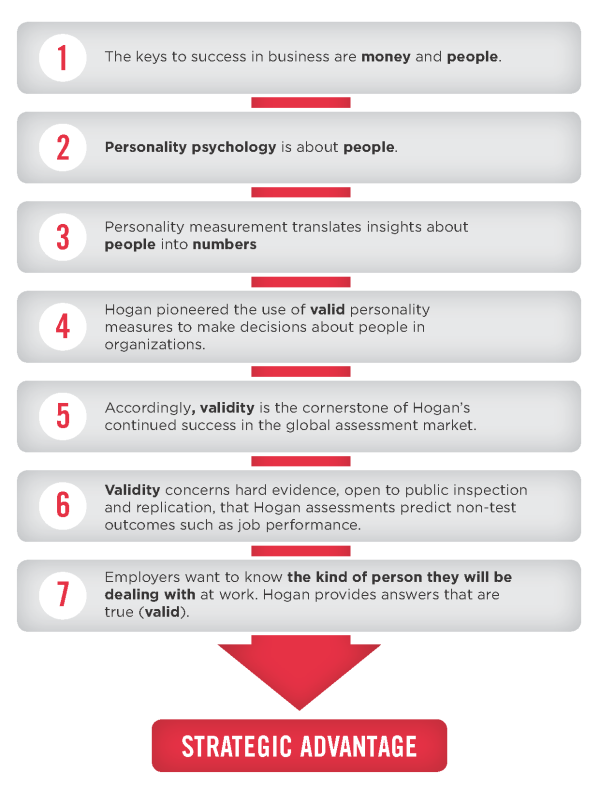
 I have been with Hogan now for just under 12 years. It’s been an incredible experience and I’m privileged to work alongside unbelievable intelligence and talent, but I have to be honest about something: in non-professional situations I dread the question, “So what is it that you do, Jesse?” I envy my wife, who when faced with the same question can simply say “I am a teacher,” or a friend who answers, “I’m an engineer.” You see, my response is something like, “I work for Hogan Assessment Systems. We publish personality assessments.” And so it begins….
I have been with Hogan now for just under 12 years. It’s been an incredible experience and I’m privileged to work alongside unbelievable intelligence and talent, but I have to be honest about something: in non-professional situations I dread the question, “So what is it that you do, Jesse?” I envy my wife, who when faced with the same question can simply say “I am a teacher,” or a friend who answers, “I’m an engineer.” You see, my response is something like, “I work for Hogan Assessment Systems. We publish personality assessments.” And so it begins….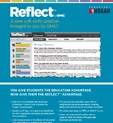 Hogan and the Graduate Management Admission Council (GMAC) partnered to launch Reflect by GMAC, the first self-directed, personality-based development tool designed to bring the power of self-awareness to B-school students.
Hogan and the Graduate Management Admission Council (GMAC) partnered to launch Reflect by GMAC, the first self-directed, personality-based development tool designed to bring the power of self-awareness to B-school students.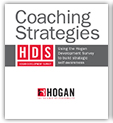 Providing candidates with accurate feedback about the behaviors they should keep doing, stop doing, and start doing is the first step to improving their interpersonal effectiveness. The Hogan Personality Inventory, Hogan Development Survey, and the Motives, Values, Preferences Inventory provide useful feedback about what individuals need to do to improve their performance at work. This interpretation guide uses a simple, but focused, series of steps to help affect behavioral and repetitional change for the coaching candidate. Visit our bookstore to purchase Coaching Strategies.
Providing candidates with accurate feedback about the behaviors they should keep doing, stop doing, and start doing is the first step to improving their interpersonal effectiveness. The Hogan Personality Inventory, Hogan Development Survey, and the Motives, Values, Preferences Inventory provide useful feedback about what individuals need to do to improve their performance at work. This interpretation guide uses a simple, but focused, series of steps to help affect behavioral and repetitional change for the coaching candidate. Visit our bookstore to purchase Coaching Strategies.
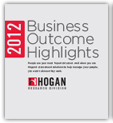 When you use one of Hogan’s assessment solutions, you can trust that it works. Hogan conducted 40 ROI studies in 2011 and 2012 for clients ranging from retail to manufacturing. Year after year, we provide empirical evidence, from increased store sales to improved organizational safety, of how our assesments impact clients’ bottom lines. Regardless of industry sector or job type, Hogan’s assessments provide a significant, long-term return on investment.
When you use one of Hogan’s assessment solutions, you can trust that it works. Hogan conducted 40 ROI studies in 2011 and 2012 for clients ranging from retail to manufacturing. Year after year, we provide empirical evidence, from increased store sales to improved organizational safety, of how our assesments impact clients’ bottom lines. Regardless of industry sector or job type, Hogan’s assessments provide a significant, long-term return on investment.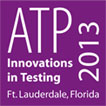 Ryan Ross and Jocelyn Hays will present at the
Ryan Ross and Jocelyn Hays will present at the 
